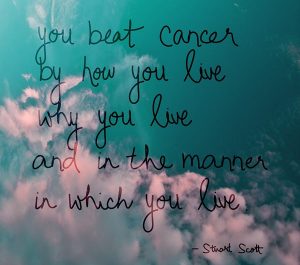《自律養生實踐家之旅248》 絕症・謊言・陰謀

當人們聽見「向宇宙下訂單」這句話,有人深信不疑,有人嗤之以鼻。這背後揭示的,其實是人們面對人生際遇時的不同理解與信念。
當事情不如預期時,第一時間浮現的是情緒反應,負面情緒可以讓人陷入無盡糾結,也可以被正向的勇氣所中和。
回顧人生中那些風暴來襲的時刻,總是有其來由,結束時又似神助。其中蘊含的,是關於「如何面對生命」的學習,也隱含著上蒼慈悲的善意。
逆境的經歷,會被有反思能力的人記錄下來,有人稱之為哲學,有人稱之為生命教育。
對我而言,那是我成長的分水嶺。
當生命幾乎走到絕境,天使或許會出現,也有可能,魔鬼仍未離去。我們有時錯把天使當成魔鬼,也可能將魔鬼誤認為天使。
天使,在民間常被稱作「貴人」,指引你正確方向,拉你一把。貴人的出現,是天意;但將你推下懸崖的,往往是你誤以為是天使的魔鬼。
古人說:「天無絕人之路。」這句話的分量,要多少人生經歷才能真正體會?我的體悟是:「慈悲來自天意,惡毒則出於人心。」
造物主賦予人類慈悲本性,這份特質與生俱來,然而人是如何變得心狠手辣?
是環境的塑造與教育的扭曲,當教育被人性操弄,遠離本性的環境便悄然形成。
大自然是天意的延伸,而人體則是大自然的縮影。自然法則適用於人體,生活作息若違逆自然,終將遠離健康。
慈悲亦是一種自然法則,對自己的身體慈悲,是狹義的養生;對他人慈悲,則是廣義的養生。
養生的核心,順應自然。人類的身體進化至今,應無太多難以對付的病症,可是現實卻處處顛覆這個常理。
甚至,我們從社會教育中學到一個概念:有些病是「無法治癒」的,稱為「絕症」。
真如古語所說:「天無絕人之路」,那麼「絕症」就不可能是天意。
試著在人群中做一個簡單的調查,問問:「你相信絕症的存在嗎?」,幾乎所有人都會回答「相信」。這代表,人選擇相信人,而不相信天。
絕症,是西方醫學根據症狀治療邏輯所下的定義,是他們無法處理的病症,是他們面對此類病症時,自大與自私的總結。
如果治不好,為何要治療?若希望渺茫,為何讓病人承受極大痛苦?病人幾乎沒有空間去思考:醫生是真心想要治癒他?還是,面子在作祟、面子不能受損?
更少人意識到,所謂「絕症」,不過是醫療體系無能的掩飾,是一場高明的謊言。
如果連病因都不清楚,又在治療什麼?醫生常常不說明病因,卻強迫病人接受治療,請務必想清楚這背後的動機。
癌症的根源來自生活,來自負面情緒長期累積。社會所宣導的致癌物並非關鍵,真正致癌的是人類的習性,是頑固與自我中心。
既然病是從生活中生出來的,解方也應從生活中尋找,習性所致,就該徹底改變不良習性。
糖尿病亦同,降血糖的藥物並不能解決問題,唯有改變導致血糖失衡的飲食與生活方式,才有可能逆轉病情。
「慈悲是天,惡毒是人。」 絕症不是天意,而是人為的發明。
「天無絕人之路」,真正的「絕路」,是人一手打造出來的,是那些不願承認錯誤的人,築起了這條路。
當面子與權力、利益與慾望佔據主導時,慈悲的人也可能不再慈悲;而「懸壺濟世」的初衷,也可能在利字當頭的現實中,漸漸迷失。
(你戰勝癌症的方式,是靠你怎麼生活、為什麼而活,以及你以什
麼樣的態度去生活。)
Terminal Illness・Lies・Conspiracies
When people hear the phrase “place an order with the universe,” some believe it without hesitation, while others scoff at it. This contrast reveals the different understandings and beliefs people hold when facing the turns of life.
When things don’t go as planned, our first reaction is often emotional. Negative emotions can entangle us in endless distress—or they can be neutralized by the courage of a positive mindset.
Looking back at the storms we’ve weathered in life, they always had their reasons for arriving and, often, a seemingly divine hand in their resolution. These experiences carry lessons on how to face life, and hidden within them is the benevolent intent of the heavens.
Those with the ability to reflect often document their hardships—some call it philosophy, others call it life education.
To me, these are the turning points of growth.
When life is on the brink of collapse, perhaps an angel appears. Or perhaps the devil never left. Sometimes, we mistake angels for devils—or worse, we mistake devils for angels.
In everyday life, angels are often referred to as guiding benefactors, those who steer you in the right direction, offering a saving hand. Their arrival feels like divine will.
But the one who pushes you off a cliff is often the devil you thought was an angel.
The ancients said, “Heaven leaves no one without a path.”
But how much life experience is required to truly understand the weight of this saying?
My realization is this: Compassion comes from divine will; cruelty originates in the human heart.
The Creator gave humanity the innate nature of compassion. But how, then, do humans become so ruthless?
It is the result of environmental conditioning and the distortion of education.
When education is manipulated by human desires, it gives rise to a world detached from our innate nature.
Nature is an extension of divine will, and the human body is a miniature reflection of nature.
Natural laws govern our bodies, and when we live against nature’s rhythms, health inevitably fades.
Compassion is also a law of nature.
Being compassionate to one’s own body is a narrow definition of wellness; being compassionate to others is a broader, more holistic one.
At the core of wellness lies alignment with nature.
If the human body has evolved over millions of years, it should not be easily overcome by disease.
Yet reality repeatedly defies this logic.
We’ve even learned a societal concept: some diseases are “incurable,” labeled as terminal illnesses.
But if, as the ancient saying goes, “Heaven leaves no one without a path,” then a “terminal illness” cannot be of divine origin.
Try conducting a simple survey: ask people, “Do you believe in terminal illnesses?”
Almost everyone will say yes. This shows that people choose to trust man, not heaven.
Terminal illness is a label defined by Western medicine, a result of symptom-based logic.
It refers to illnesses they cannot resolve—an arrogant and self-serving conclusion.
If there’s no cure, why pursue treatment?
If the outlook is grim, why subject patients to immense suffering?
Do patients ever have space to wonder: Is this doctor genuinely trying to heal me? Or just protecting their pride?
Few realize that a “terminal diagnosis” may just be a clever lie—an elegant cover-up for the incompetence of the medical system.
If even the cause of the illness is unknown, what exactly is being treated?
Doctors often withhold explanations of root causes, yet urge patients into treatment. One must ask: what is the real motive behind this?
Cancer is born from lifestyle and long-suppressed negative emotions.
Carcinogens promoted by public health campaigns are not the true culprits—human habits are. Stubbornness and egocentrism are the real causes.
Since disease grows from daily life, the solution must also come from it.
If illness is caused by poor habits, it must be reversed by uprooting those habits.
The same applies to diabetes.
Blood-sugar-lowering drugs do not solve the root problem. Only by transforming the dietary and lifestyle patterns that cause blood sugar imbalance can one truly reverse the condition.
“Compassion is of heaven; cruelty is of man.”
Terminal illness is not divine will—it is a man-made invention.
If heaven does not forsake us, then the real dead ends in life are built by human hands—crafted by those unwilling to admit their mistakes.
When pride, power, profit, and desire take center stage, even the compassionate can lose their compassion.
And the original intent of “healing the world with medicine” may slowly be lost in a world ruled by self-interest.


